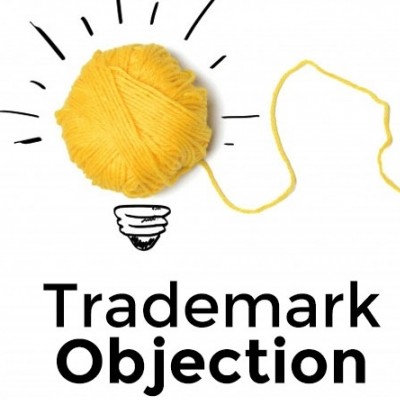Rectification is the legal procedure to correct (rectify) an error or an Fault that has been made in the details of a trade mark as recorded in the Trade Marks Register. Removal of the mark from the trademark register unless proper evidence of usage is submitted by the trademark owner.
Trademark Opposition Services in Purnea, Bihar
Trademark protest in India comes at a stage when the registrar has approved the trademark application on the basis of exclusivity and published the third party opposition’s trademark in the journal. Has your trademark faced opposition? Don’t worry, contact Avyud Consultancy to file reply/ counter to Trademark Opposition. Avyud Consultancy can assist you with filing a trademark protest or responding to a protest raised by a third party. The average time taken to file a trademark protest notice is approximately 7-10 business days, subject to government processing time and client document submission.
Contact Us for Trademark Opposition Services in Purnea

The Benefits of Opposition Proceedings
- Promoting the greater integrity and accuracy of the Trademark Register, and benefiting trademark owners and the consuming public, by:
- allowing applicants and aggrieved third parties the opportunity to provide assistance to Trademark Offices when or before granting trademark registrations by providing information and materials that otherwise may not be readily available, but which may be necessary to render an accurate decision;
- deterring potential trademark applicants from applying for and using confusingly similar trademarks which may conflict with pre-existing rights or other legitimate interests of third parties; and
- giving some measure of confidence to a trademark applicant whose trademark is not opposed or who successfully defends itself in an opposition that its trademark is distinctive and registrable.
- Saving time and money; in most jurisdictions, opposition proceedings are typically less expensive and usually more expeditious means for parties to resolve conflicting trademark rights with respect to a trademark application, versus judicial proceedings. Further, opposition proceedings can save the unsuccessful trademark applicant from the cost of additional investment in a mark considered confusingly similar to a prior mark.
- Saving judicial resources; opposition proceedings will also reduce the time and effort the local courts would have to devote to validity challenges in infringement actions and also to expungement proceedings in respect of trademarks which did not go through opposition proceedings.
Be it further resolved, that International Trademark Association (INTA) entreats all governments of countries which do not yet have resist proceedings as imagined above to establish and make available such opposition proceedings as soon as possible to accord to all trademark owners and users the benefits mentioned above.
Who can Oppose a Trademark?
Section 21 of the Trademarks Act, 1999 says that “any person” who wants to oppose a trademark application can do so by filing a Notice of Opposition on the prescribed form along with the prescribed fee. The opponent does not necessarily have to be a registered proprietor of a trademark. He can be a purchaser, customer or a member of the public likely to use the goods. The rationale behind this is that the opponent is not only representing himself but the public at large because having two similar marks in the market can only result in confusion amongst the public at huge.
Speak to Our Expert
How Can a Company Oppose a New Trademark?
Generally, a new application for trademark registration is published in government journals or gazettes, in print and online. This gives established companies a door of opportunity to oppose the registration of a trademark before it is granted. In local jurisdictions, there is a set period, Generally up to three months, where an individual or group can officially oppose a new registration. The rules of opposition change from state to state. Such as, in some states, the opposition period comes after the issuance of registration, called a post-grant opposition. No any matter what the consequence, even if it is that the trademark must be amended, that the opposition is granted or that it has been dismissed, all parties are informed in writing.
Why Choose Us for Trademark Opposition Services
Our Happy Client






FAQs for Trademark Opposition Services
What is Trademark Opposition?
A person who thinks that his/her brand name or company’s reputation will be damaged by the registration of a mark, may file a trademark protest.
1. Who can file the Notice of Opposition?
As per section 21 of the Trademark Act, 1999 ‘any person’ can record a notification of opposition. This includes individuals, organizations, association firms and trusts. Truth be told, if two or more people have similar issues against a brand name, they can be clubbed together as opponents.
What Arguments Can a Party State for Opposition?
An opposing view can be split into two categories; absolute grounds and relative grounds. An absolute ground is when a company opposes the trademark due to defects in the mark itself.
When the trademark describes the product and/or service
- It is generic of the goods/services
- It is not distinctive to that brand/Fraud
A relative ground covers any argument based on the fact that the trademark would cause conflict with an already established mark, which belongs to the Opposer. The most common of which are:
- Confusion between the brands
- Bad faith
- Name use
- Known mark
It is important to remember that anyone can oppose the rights to a new trademark based on absolute grounds, but only the holder of a prior mark, to which the new mark would cause conflict, can oppose on relative grounds.
Trademarks Offer Identification
- Trademarks are unique so that goods or companies can be identified. A trademark defines a company and protects consumers from being misled to work with reputable companies.
- Trademarks also help consumers identify a source. This identification allows consumers to make value judgement about products before they purchase them.
What is Trademark Registration?
Trademark registration is a legal process provided under the Trade Marks Act, 1999. Through trademark registration or you can say logo registration/brand registration, you can protect your brand or logo by restricting other people from using it.
What can be Registered as a Trademark?
A phrase, word, symbol, device, or even a color is eligible for trademark. Whatever sets your party or company item apart from another is worthy. However, the item must be used in a business setting to receive protection from the law. Trademarks have a protection period of 10 years.
Our Other Trademark Service in Purnea, Bihar
Trademark Objection
The Trade Marks Office can, for several reasons, have objections to your trademark application. This perhaps because the word and logo is too similar to an existing trademark, because it could hurt religious sentiments or if it is likely to cause confusion, among several other reasons.
Trademark Opposition
Everybody know a lot about Trademark Registration, now it’s also important to know about what may happen after trademark registration in India. Let us understand the concept of opposition, generally opposition as the name suggest means the act to register a disagreement with something.





